Services
Recent legislative and regulatory changes across the Lower Mainland and Fraser Valley have made it unlawful to dispose of food. We can help!

Expert, Fast & Convenient
Our goal is to work with you and your team to understand your food waste problem, recommend solutions and implement a cost-effective resolution.


Hauling & Pick Ups Service
With our partners in the waste hauling industry, we can haul and pick up. From scheduled service for totes and bins to un-scheduled hauling of larger containers, we do it all.



The Local Organics Division Solution
Our goal at Fraser Valley Renewables is to improve on the way we utilize food waste in the Fraser Valley while keeping costs at a minimum.
Free Consultation
For more information on our facility in Abbotsford, or for a complimentary assessment on how our services can work for you, contact us today for a free consultation and quote!
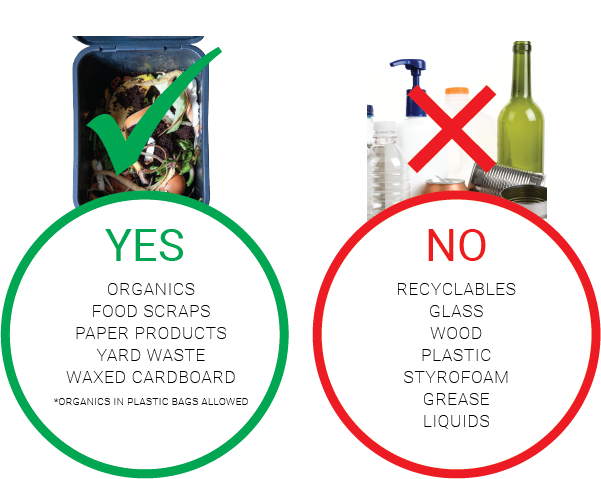

Depackaging
What is depackaging?
At Fraser Valley Renewables Ltd., we process all types of palletized organic waste from liquids to frozen foods. Our machine can separate the packaging from the actual food product. A destruction certification can be provided as required.
Rest assured we will find the best use for your food waste!
Based on your instructions, we can:
1. Destroy the product and dispose of the organics and packaging
2. Break down the shipment and donate to Food Banks
3. De-package and dispose of the organic portion for livestock feed
4. De-package and distribute the organic portion to our network of local anaerobic digestion and/or compost facilities for the production of renewable energy and Class A compost.
Full-Service Solution
Our full-service solution offers customers:
– complete chain of custody documentation
– proof of product destruction
– secure interior staging and storage
– confidential product management (if applicable)
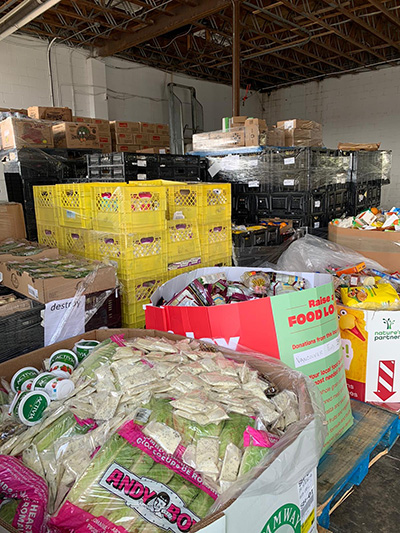

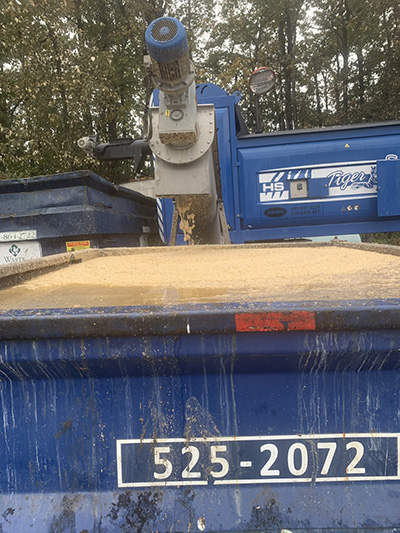

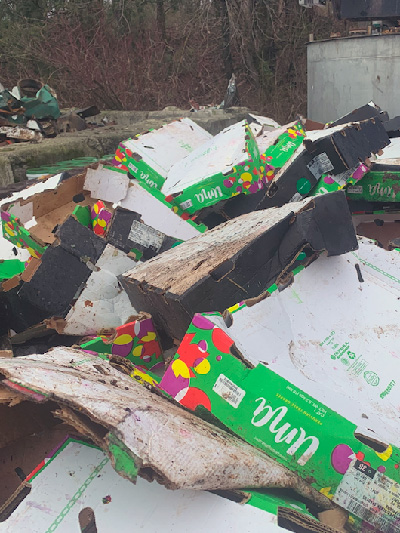




Zero Waste, Just Energy
Anaerobic digestion produces biogas, which contains roughly 60% methane and 40% carbon dioxide. The gas will be upgraded to renewable natural gas and injected into the FortisBC pipeline.


Reduce, Reuse, Reforest
Useful products produced include “Class A” compost that can be used as a soil amendment to agricultural land in the Fraser Valley.



Create a Diversion
Fraser Valley Renewables diverts and processes organic waste otherwise destined for landfill – up to 410 tonnes per day / 2,900 tonnes per week.
The System
Fraser Valley Renewables uses a wet anaerobic digestion (AD) technology to process low solids organic feedstock (e.g. commercial foodwaste and source-separated organics from packaged food waste) and a high solids anaerobic digester (HSAD) to process high solids feedstocks (e.g. municipal yard/garden and foodwaste). The biogas produced will be upgraded to FortisBC’s specifications using Pressure Swing Adsorption (PSA) technology. The resulting renewable natural gas will be transported by FortisBC for injection into their natural gas distribution system.
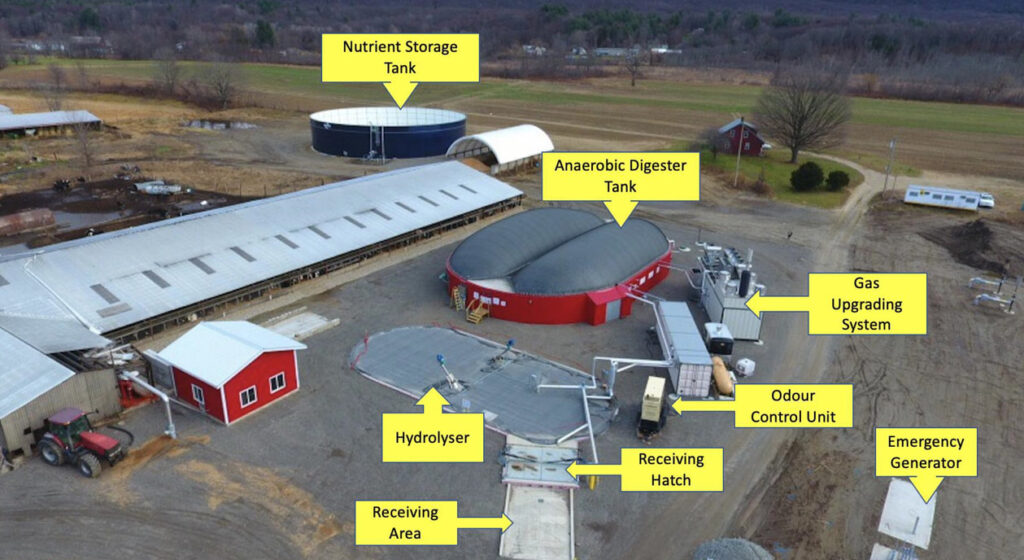

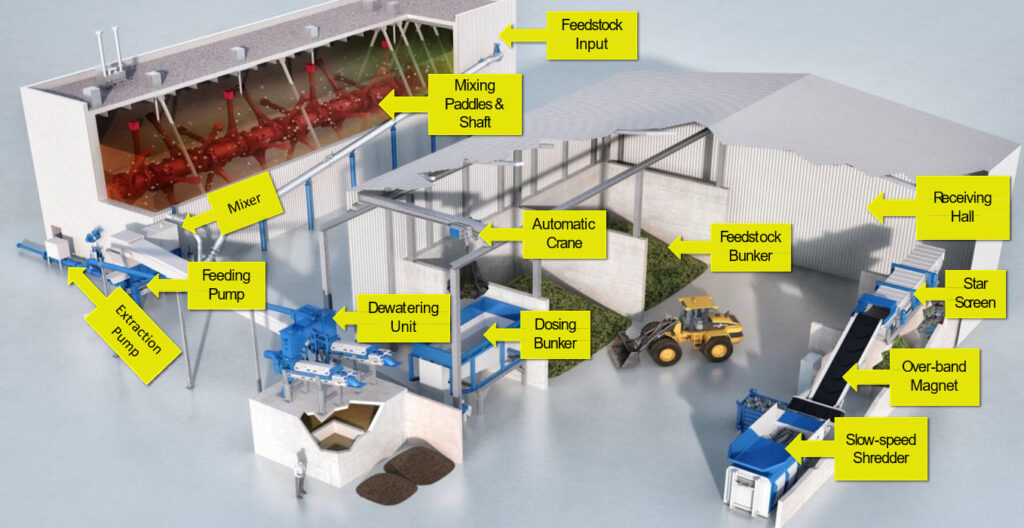

Supporting CleanBC
With a carbon intensity score of -270 kC02/GJ, Fraser Valley Renewables helps BC fight climate change. The province has a target of 0.75 Mt/year reduction in greenhouse gases (GHGs) from renewable energy projects. Each year, Fraser Valley Renewables will reduce GHG emissions and helps BC to reach its goal!
We turn waste into usable products, supporting our zero waste and circular economy goals. We work with local communities to collect municipal yard and garden waste, expired packaged goods, and fats, oils and greases. This organic waste typically ends up in landfill, creating unnecessary greenhouse gas emissions. Fraser Valley Renewables diverts the material from landfill and turn it into usable, clean energy for the neighbouring region.


Fraser Valley Renewables processes up to 150,000 tonnes of organic waste otherwise destined for landfill.


Fraser Valley Renewables produces up to 170,000 GJs of renewable natural gas, enough to power 2,500 homes!


Fraser Valley Renewables reduce reduce GHG emissions by approximately 54,000 tonnes.
